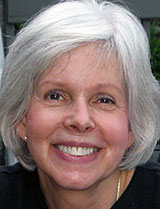
Ann Richmond, Ph.D.
- Professor of Pharmacology
- Professor of Dermatology
Phone
Vanderbilt University Medical Center
432-B Preston Building
Nashville, TN 37232-6840
432-B Preston Building
Nashville, TN 37232-6840
Ann Richmond, Ph.D.
- Professor of Pharmacology
- Professor of Dermatology
615-343-7777
ann.richmond@vanderbilt.edu
Vanderbilt University Medical Center
432-B Preston Building
Nashville, TN 37232-6840
432-B Preston Building
Nashville, TN 37232-6840
Research Program
-
Tumor Immunology and Microenvironment Research Program
Departments/Affiliations
Education
- Ph.D., Emory University, Atlanta, Georgia (1979)
- M.N.S., Louisiana State University, Baton Rouge, Louisiana (1972)
- B.S., Northeast Louisiana University, Monroe, Louisiana (1966)


